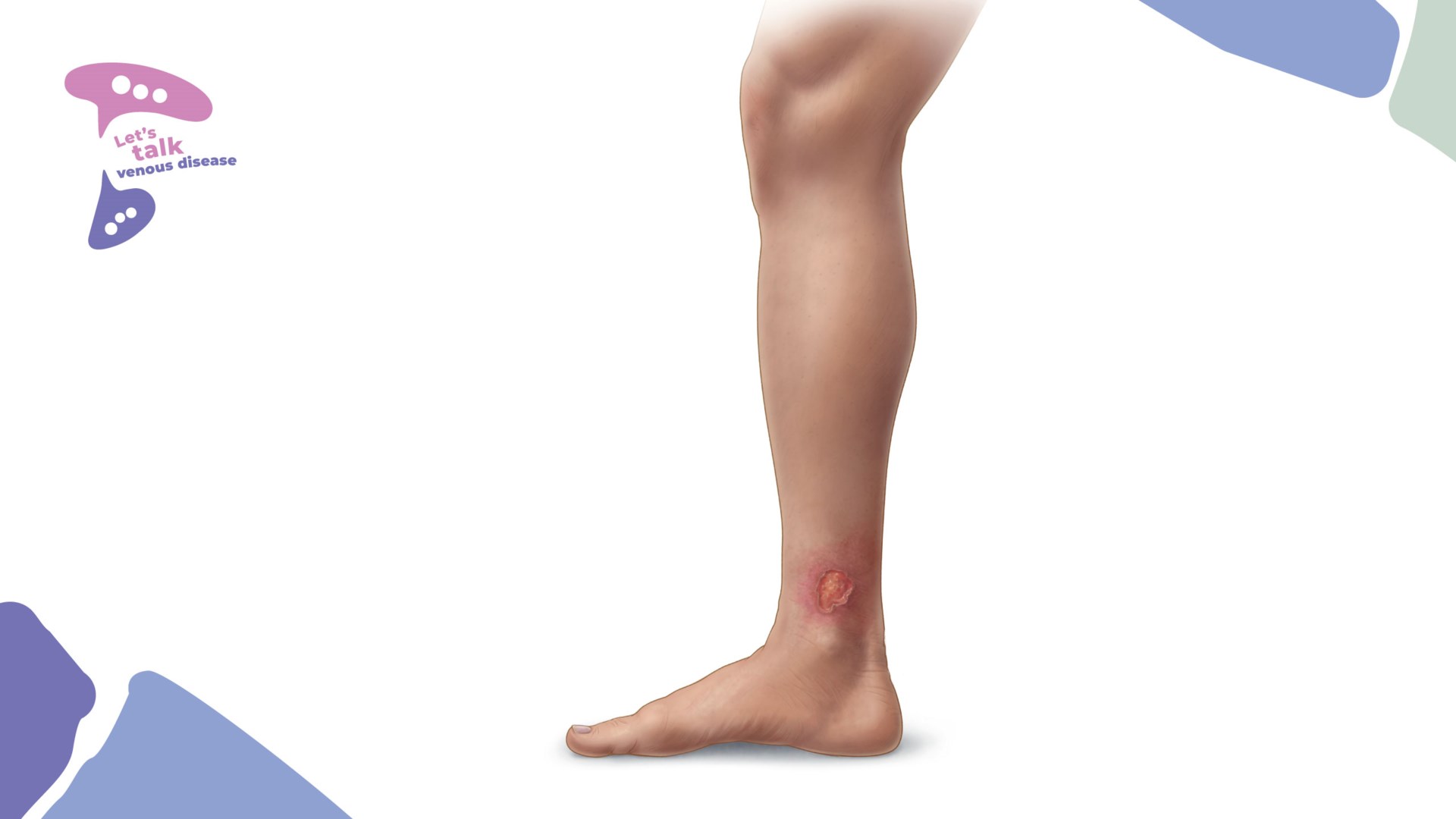Venous leg ulcer

What is a venous leg ulcer?
A leg ulcer is a wound or open sore, usually on the lower leg, that takes a longer than two weeks to heal (NICE, 2020).
Most leg ulcers happen because the blood isn’t flowing well in the veins. When veins don’t work properly, blood can pool in the lower legs, causing swelling and extra pressure. This can damage the skin and make it break down, forming a sore (NICE,2020). Leg ulcers can be painful, may leak fluid, and get infected if not treated well. They often need good wound care, help with blood flow, and compression will help to treat any underlying vein or circulation problems (O’Meara et al, 2012).
How do venous leg ulcers start?
A venous leg ulcer can start from any small wound or knock that breaks the skin — for example:
- Bumping your leg on a car door
- Knocking your shin with a walking frame or stick
- Hitting your leg on a table or plant pot
- A scratch from a pet, bush, or sharp object
- A small cut when shaving or gardening
- A break in the skin
Healthy skin usually heals quickly. But if you have poor vein flow, even a tiny injury can turn into a bigger wound that struggles to heal.
Stay active. Wear your compression. Look after your skin. And don’t be afraid to ask for help!